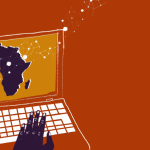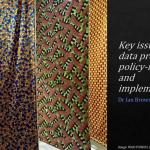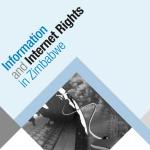The struggle for the realisation of the right to freedom of expression in Southern Africa
The struggle for the realisation of the right to freedom of expression in Southern Africa

The right to freedom of expression is enshrined as a cornerstone of democracy. This is because of its intrinsic importance in informing the public and encouraging debate. Inherent in the right to freedom of expression is the notion of access to information and press freedom. Freedom of expression also underpins a range of other rights, thereby enabling the full realisation of fundamental rights. It is by now well-established by the UN and the African Commission on Human and Peoples’ Rights (ACHPR) that rights, particularly the right to freedom of expression, apply equally online and offline. As set out in the African Declaration on Internet Rights and Freedoms:
- Everyone has the right to hold opinions without interference.
- Everyone has a right to freedom of expression; this right shall include freedom to seek, receive and impart information and ideas of all kinds through the Internet and digital technologies and regardless of frontiers.
- The exercise of this right should not be subject to any restrictions, except those which are provided by law, pursue a legitimate aim as expressly listed under international human rights law (namely the rights or reputations of others, the protection of national security, or of public order, public health or morals) and are necessary and proportionate in pursuance of a legitimate aim.
- The exercise of the right to freedom of expression can, at times, require tolerance from others. As has been explained by the Constitutional Court of South Africa, the right to receive or impart information or ideas is applicable “not only to ‘information’ or ‘ideas’ that are favourably received or regarded as inoffensive or as a matter of indifference, but also to those that offend, shock or disturb.”
Indeed, the right extends even where those views are controversial: The corollary of the freedom of expression and its related rights is tolerance by society of different views. Tolerance, of course, does not require approbation of a particular view. In essence, it requires the acceptance of the public airing of disagreements and the refusal to silence unpopular views.
Notably, however, the right to freedom of expression is not absolute. It must necessarily be balanced against competing rights and interests. Some forms of speech do not enjoy any protection under international law, while other restrictions to the right to freedom of expression are only permissible under certain circumstances.
The challenge being experienced in Southern Africa – and indeed globally – is that states and private sector actors are adopting laws, policies and other measures that unjustifiably restrict the right to freedom of expression. This is typically done under the guise of, for instance, national security or the protection of reputation, but it encroaches far beyond that which is permitted under the law These unjustifiable restrictions have a chilling effect on the free flow of ideas and meaningful discourse, and have the potential to severely undermine the full realisation of the right.
This report focuses on the content of the right to freedom of expression and gives an assessment of restrictions to the right. In Part I, we look at the international human rights framework on the right to freedom of expression as set out in international treaties and other appropriate resources, in order to distil the key elements of the right. In Part II, we set out the legal position on the circumstances under which the right to freedom of expression may be limited. In Part III, we explore key case studies across Southern Africa that raise serious concerns about existing or prospective laws that will restrict the right to freedom of expression. Lastly, in Part IV, we will take a forward-looking approach to consider what strategies can be used to safeguard the right to freedom of expression at its essence, and set out our recommendations for different stakeholder groups.
This report does not purport to cover all laws in the respective countries in Southern Africa. Instead, the researchers have had the discretion to identify those laws that are seen to be of most concern in the present time, taking into account the political, social and economic landscape in the country at the moment. Through this report, we have identified key trends and recommendations for states, private sector actors and civil society to consider in the development of laws, policies and measures that impact the right to freedom of expression.
The need for this report was identified at a meeting of the Southern African members of the African Declaration on Internet Rights and Freedoms (AfDec) Coalition. It was recognised that while the right to freedom of expression is firmly entrenched at the domestic, regional and international levels, the realisation of this right remains a struggle in practice, particularly in the digital era.







